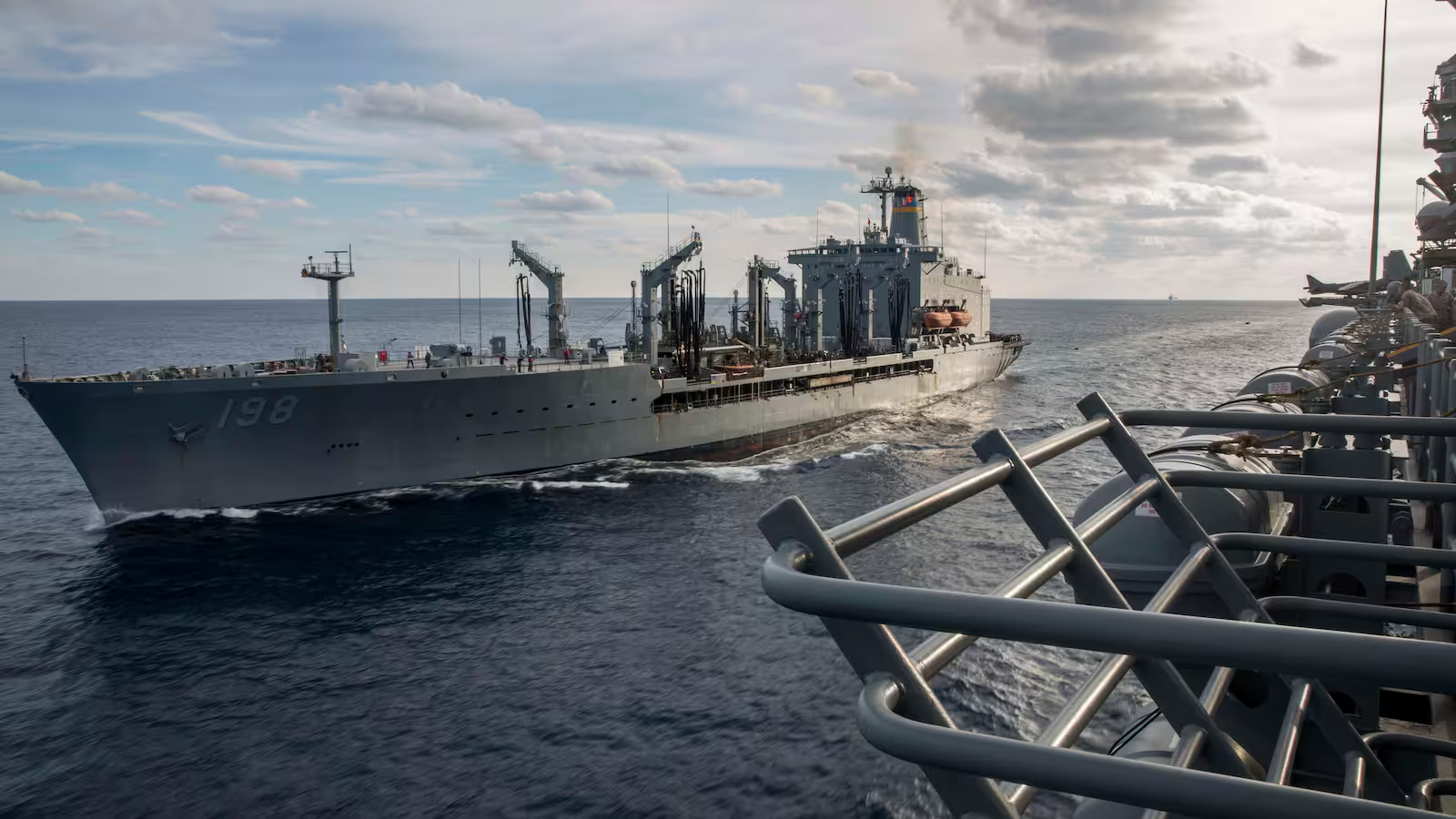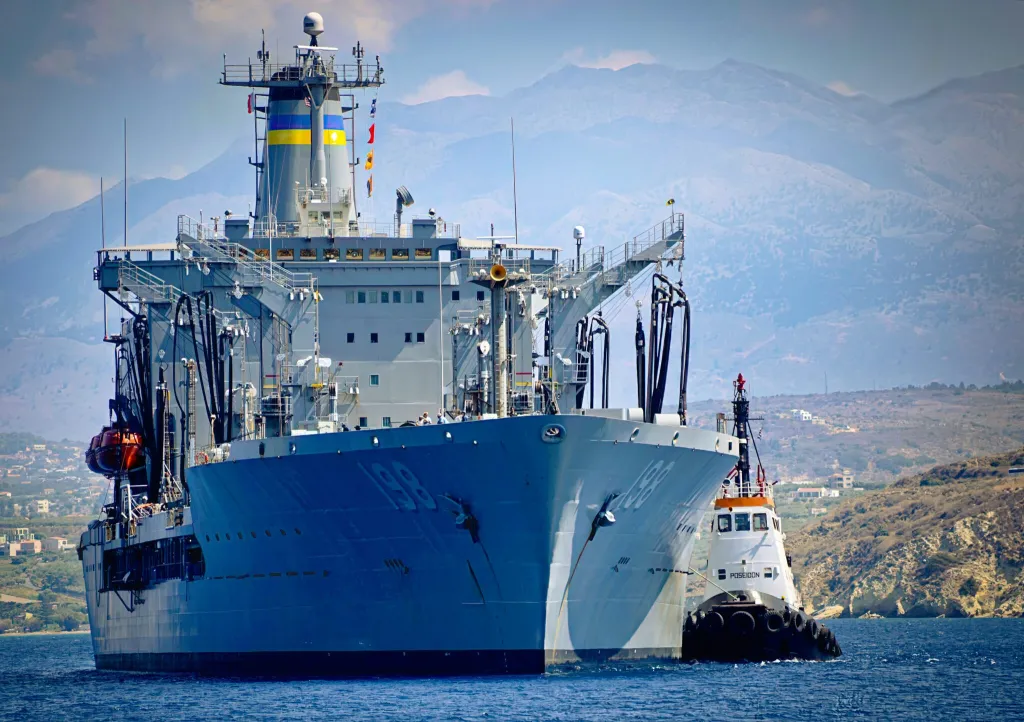The USNS Big Horn, a U.S. Navy replenishment ship, has sustained damage while operating in the Middle East after completing a refueling mission. This incident occurred in the context of heightened tensions related to the ongoing Israel-Hamas conflict and Israel’s military actions against Hezbollah in Lebanon. The Big Horn had just resupplied the USS Abraham Lincoln aircraft carrier strike group, which remains active in the region.
Details regarding the damage’s specifics and location remain unclear, as U.S. Navy officials have chosen not to disclose further information. Recent military photographs show the Big Horn in operation, supplying the USS Abraham Lincoln on September 5 and later positioned alongside the carrier on September 11 in the Arabian Sea. A Navy official confirmed that the crew aboard the Big Horn is safe and that there is no evidence of an oil leak.

Damage Reported on USNS Big Horn as Middle East Tensions Escalate
Following the incident, the Big Horn is being assisted by private tugboats as it heads toward a port for damage assessment. Early reports suggested flooding aboard the vessel, with speculation that it may have run aground off the coast of Oman, as indicated by images posted on the shipping tracking website gCaptain. These developments have raised concerns about the operational readiness of the replenishment ship.
The USS Abraham Lincoln, powered by a nuclear reactor, operates alongside other vessels that depend on fossil fuels, which necessitate ongoing resupply at sea. While the damage to the Big Horn is considered an inconvenience, U.S. officials have indicated that the strike group’s operations will not be significantly affected. Destroyers can refuel in port, and aviation fuel can be transported to the carrier for its aircraft.
It remains uncertain if any other replenishment ships are currently available in the Middle East. An Associated Press review of military imagery from the U.S. Navy’s Military Sealift Command has shown no similar vessels in the region in recent months. The command has declined to comment further on the situation, leaving questions about logistical support unanswered.











































